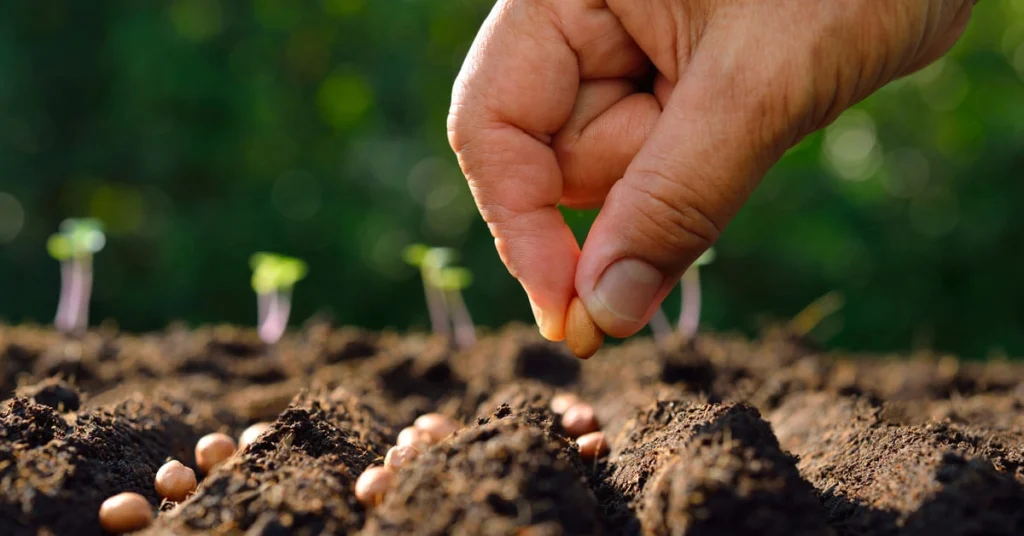Prepare or Push?
Last week, I found myself standing in our kitchen at 5:47 AM, staring at a massive pile of tomatoes that looked like they were staging a revolution on my counter. We’re talking about the kind of tomato abundance that makes you question every life choice that led to this moment—the beautiful, overwhelming, slightly panic-inducing harvest that hits every homesteader in late August.
I had two choices: I could spend the entire weekend frantically canning everything in sight, or I could accept that some of those beautiful tomatoes were going to become very expensive compost.
This moment perfectly encapsulates the central tension of homestead life: Do you prepare for everything, or do you push through and deal with whatever comes?
It’s a question that goes way deeper than tomato management, and it’s one I’ve been wrestling with more and more lately. Because here’s the thing about homesteading: there’s always more you could be doing to prepare for whatever might happen next.
You could can more vegetables, preserve more meat, stockpile more supplies, learn more skills, build more infrastructure.
But at what point does preparation become procrastination? When does getting ready to live become a substitute for actually living?
I’ve watched this play out in countless ways over the years. There’s the person who spends so much time planning the perfect garden that they never actually plant anything. The family that invests so much in emergency preparedness that they never learn to enjoy their regular daily life. The homesteader who’s always getting ready to start the next project but never seems to actually finish anything.
These are all forms of preparation paralysis, and they’re more common than we like to admit.
On the flip side, I’ve also seen the opposite extreme: people who just barrel ahead without any preparation at all.
This approach usually leads to expensive mistakes and dangerous situations.
So where’s the balance? How do you know when you’ve prepared enough and it’s time to just push forward?
Sometimes, you absolutely need to prepare first.
I learned about feeding, breeding, milking, health issues, and facility requirements. I talked to other dairy farmers, visited their operations, and made sure I understood what I was getting into.
This preparation wasn’t procrastination—it was necessary education that prevented serious mistakes.
If I had just bought a cow without doing that research, I could have ended up with sick animals, unsafe milk, or a completely unmanageable situation. The time I spent preparing saved me money, prevented suffering for the animals, and set us up for success.
But sometimes, preparation becomes an excuse for inaction.
I know homesteaders who’ve been “preparing” to start their market garden for three years running. They’re still researching varieties, still planning bed layouts, still calculating potential profits. Meanwhile, growing seasons are passing by, and they’re missing opportunities to actually learn through doing.
At some point, you have to plant something and see what happens.
The truth is, you can’t prepare for everything. No amount of research will substitute for the knowledge you gain from actually doing something. No amount of planning will prevent all possible problems.
Real expertise comes from the combination of preparation and experience.
So how do you know which approach to take in any given situation? Here’s what I’ve learned:
Prepare when the stakes are high and you can’t afford to fail.
If failure could result in serious injury, financial disaster, or harm to animals, then preparation is essential. Learn the safety procedures, understand the risks, and make sure you have the knowledge and equipment you need to do things correctly.
Push when the stakes are low and failure is a good teacher.
If the worst thing that can happen is that you waste some time or money, then sometimes it’s better to just try something and learn from the results. You can read about growing tomatoes all day, but you won’t really understand your soil, climate, and growing conditions until you actually plant some seeds and see what happens.
Prepare for the predictable, push through the unpredictable.
Some challenges are predictable—winter will come, animals will need food, equipment will break down. These are things you can and should prepare for. But life is full of unpredictable challenges that you can’t possibly anticipate, and preparing for every possible scenario will drive you crazy.
Push when preparation becomes perfectionism.

If you find yourself endlessly researching, planning, or organizing without ever taking action, you’ve probably crossed the line from preparation into perfectionism. Sometimes you have to accept that your plan won’t be perfect and move forward anyway.
The goal isn’t to eliminate all risk—it’s to take smart risks.
Back to those tomatoes on my counter. Could I have prepared better for the harvest by installing a bigger pressure canner, organizing my canning supplies more efficiently, or researching faster preservation methods? Absolutely.
But at some point, you have to work with what you have and push through the challenge. I spent the weekend canning what I could, making sauce with what I couldn’t can, and yes, composting some perfectly good tomatoes because there’s only so much one person can process in a weekend.
And that’s okay.
The perfect is the enemy of the good, and sometimes good enough is actually good enough. I’ve got shelves full of canned tomatoes for winter, a freezer full of sauce, and a compost pile that’s going to create amazing soil for next year’s garden.
Plus, I learned valuable lessons about timing my plantings and managing abundance that I couldn’t have learned from any amount of preparation.
So here’s my advice: prepare for the big stuff, push through the small stuff, and don’t let the pursuit of perfect preparation prevent you from taking action.
Life is meant to be lived, not just prepared for.
Sometimes you’ll be perfectly prepared for whatever comes your way. Sometimes you’ll have to figure it out as you go. Both approaches will teach you valuable lessons, and both have their place in a well-lived life.
The key is knowing which one to use when, and being comfortable with the fact that you’ll never get it right 100% of the time.
Preparing for some things, pushing through others,
-Nichole
P.S. Those tomatoes that became compost? They’re already sprouting volunteer plants in my compost pile. Sometimes what looks like failure is actually just life finding another way to succeed.


Leave a Reply